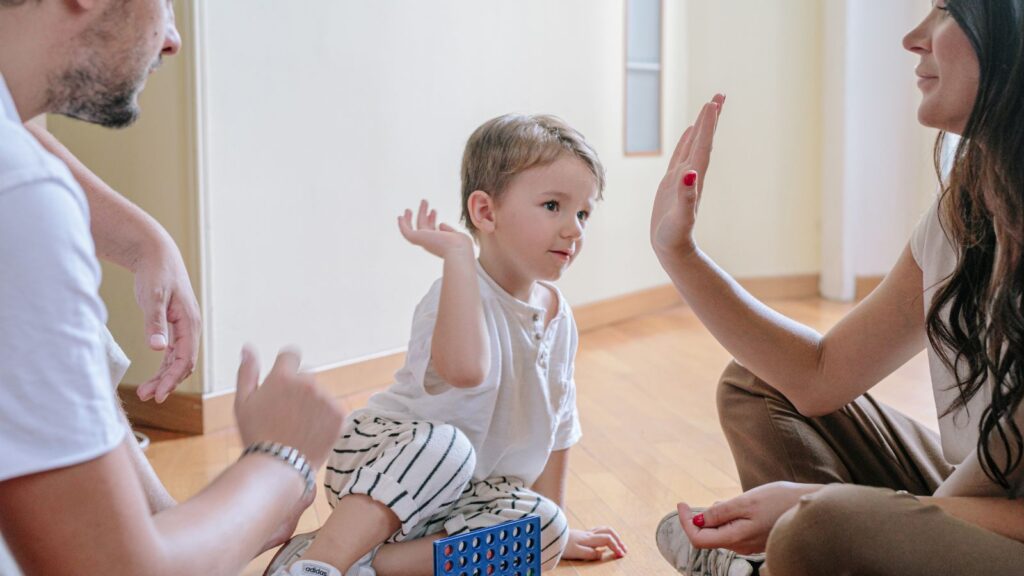Watching your child scratch at itchy skin in the middle of the night is honestly tough. Plenty of parents have been there—lying awake, wishing their little one could just get comfortable and drift off. Eczema, which is so common in kids, seems to love making nights even harder.
Kids with eczema really do sleep better when parents stick to a bedtime routine: think lukewarm baths, slathering on moisturizer right after, and dressing in soft cotton pajamas. These steps help keep skin calm and less irritated, especially when nighttime itching tries to take over.
The bedroom itself matters too. Keeping things cool, using gentle detergents on bedding, and dusting regularly can all make a difference. With a bit of trial and error, families usually find some relief—and maybe even a few nights of decent sleep.
Understanding Childhood Eczema and Nighttime Symptoms
Treating childhood eczema in kids has this annoying habit of getting worse at night, which is a headache for everyone involved. It’s actually pretty common—about 1 in 5 children with eczema deal with sleep problems because of it.
Common Causes of Nighttime Itching
Why does eczema itch more at night? It’s partly biology. Body temperature goes up in the evening, so blood flow to the skin increases, and that can set off the itch. At the same time, cortisol (which helps keep inflammation down) drops off, leaving skin more vulnerable.
Then there are all the little things in the room: dust mites in the bedding, scratchy fabrics, stuffy air. These factors can really add up. Some kids even produce more histamine at night, which just ramps up the itch further. It’s no wonder they sometimes scratch without even realizing it.
How Eczema Disrupts Children’s Sleep
The sleep problems with eczema are pretty consistent. Kids might take 30-45 minutes longer to fall asleep than their friends, and they wake up more often, too. Studies suggest children with eczema can lose a couple of hours of sleep each night during bad flare-ups, especially missing out on REM sleep (which, by the way, is the good stuff for memory and mood).
The itch-scratch cycle just keeps spinning:
- Itching wakes them up (or almost wakes them)
- Scratching messes up the skin barrier
- That damage leads to more inflammation
- And the cycle keeps going with more itching
Recognizing Sleep Loss in Children With Eczema
How do you know if eczema is ruining your child’s sleep? Sometimes it’s the crankiness or mood swings that show up first. You might notice your child seems tired even if they were in bed for a good stretch. Teachers might mention that your child is zoning out or not participating as much. Some kids are just more sensitive to little frustrations that wouldn’t usually bother them.
Physical signs are there too:
- Dark circles under the eyes
- Morning headaches
- Trouble getting up
- Changes in appetite—either more hungry or less interested in food

Kids don’t always come out and say they’re not sleeping well. Instead, they’ll complain about itching or pain, ask you to stay with them at night, or start resisting bedtime because they connect it with being uncomfortable.
Effective Strategies to Soothe Eczema at Night
Managing eczema at night takes a mix of the right skin care, comfy bedding, and a few smart habits. Here are some ideas that can make a real difference for kids (and their tired parents).
Creating a Calming Bedtime Routine
Keeping things predictable at bedtime can lower stress, which is known to set off eczema. Try dimming the lights about half an hour before bed to help your child’s body wind down. Lukewarm baths—not hot, just comfortably warm—can be super soothing. Toss in some colloidal oatmeal or half a cup of baking soda if the skin is really irritated.
After the bath, gently pat the skin dry. Put on any prescribed medications, then moisturizer right away to trap in hydration. Quiet activities like reading or some gentle stretching can help kids relax. If possible, skip screens before bed. The blue light really doesn’t do sleep any favors and can even stress kids out more.
Optimal Skin Care Before Bed
Moisturizing is key. Go for thick creams or ointments instead of runny lotions—they just work better overnight.
Some go-to moisturizers for eczema:
- Petroleum jelly (Vaseline)
- Cerave Healing Ointment
- Eucerin Original Healing Cream
- Vanicream Moisturizing Ointment

Put on any medications first, wait about 15 minutes, then slather on the moisturizer. Don’t just spot-treat—cover all the skin, with extra attention to problem areas. Wet wrap therapy can help with really stubborn flares. After medication and moisturizer, wrap the area with damp cotton, then layer dry clothes on top. It feels a bit odd, but really helps keep skin calm and stops scratching. Skip anything with fragrance, alcohol, or harsh preservatives—they’re more likely to make things worse.
Choosing Sleep-Friendly Pajamas and Bedding
The right fabrics make a difference. Cotton is usually best, soft, breathable, and less likely to make kids overheat. Look for 100% cotton sheets with a higher thread count (400 or above) for extra smoothness. Wash bedding every week with fragrance-free, dye-free detergent, and give it an extra rinse if you can.
Pajamas should be loose and comfy. For little ones, pajamas with built-in mittens can help keep nails away from itchy skin during the night. Dust mite covers for pillows and mattresses are worth a try, since dust mites are a common trigger. Try to keep the bedroom cool—somewhere around 65-72°F (18-22°C)—and humidity at 45-55% so skin doesn’t dry out too much.
Preventing Scratching While Asleep
Trimming fingernails short and smoothing out any rough edges can really cut down on damage from scratching. Honestly, it’s a small thing, but worth making part of the nightly routine. Cotton gloves or mittens over moisturized hands help, too. For little kids, ScratchSleeves or similar silk-mitten products are out there—clearly made with scratchy sleepers in mind.
If scratching keeps happening, lightweight pajamas with feet and long sleeves can put a layer between nails and skin. Some parents swear by those “onesie” PJs that cover the hands, especially for determined scratchers. Sometimes, a cool compress on itchy spots before bed takes the edge off. And if your pediatrician gives the green light, an antihistamine might help with the itch and maybe even lead to better sleep.



